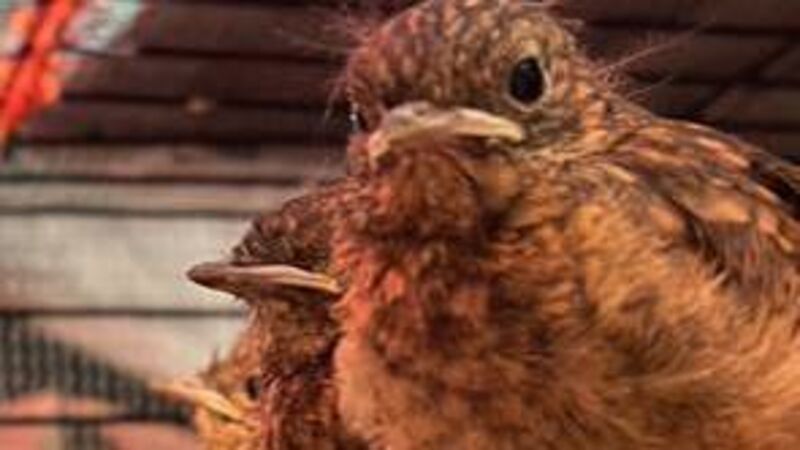Baby robins 'doing exceptionally well' after rescue from disused Luas tram

The baby Robins which hadn’t been fed for a day at least when they were found in a disused Luas tram.
Four baby robins discovered in the engine of a disused Luas tram are thriving in rehab after quick-thinking maintenance workers got them to safety.
The chicks were heard chirping in a locked-up shed in a yard beside the Red Cow in south Dublin when engineers went to investigate. Rescuers say the birds may have been there for around a day without food or water — after the train was moved into a closed area — and would never have survived alone.










